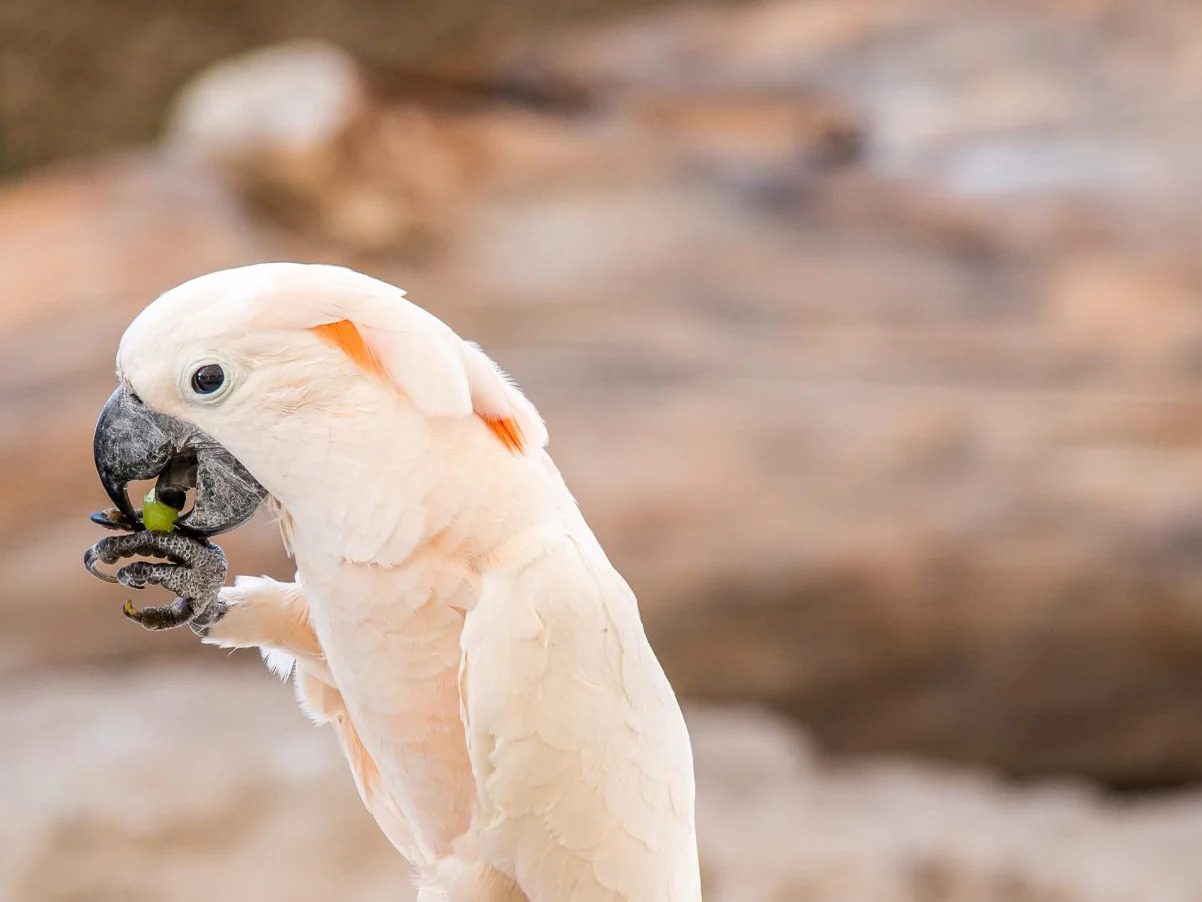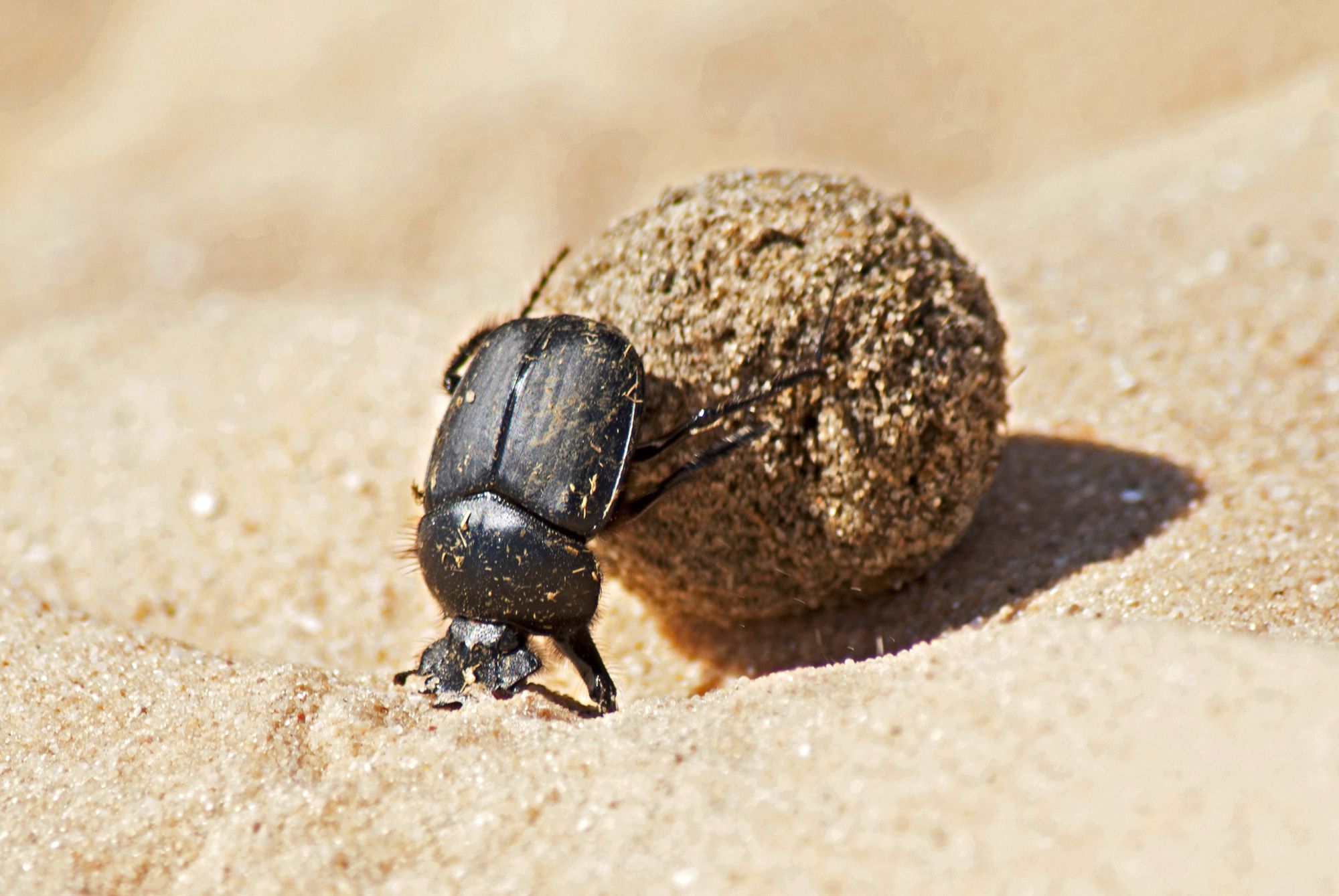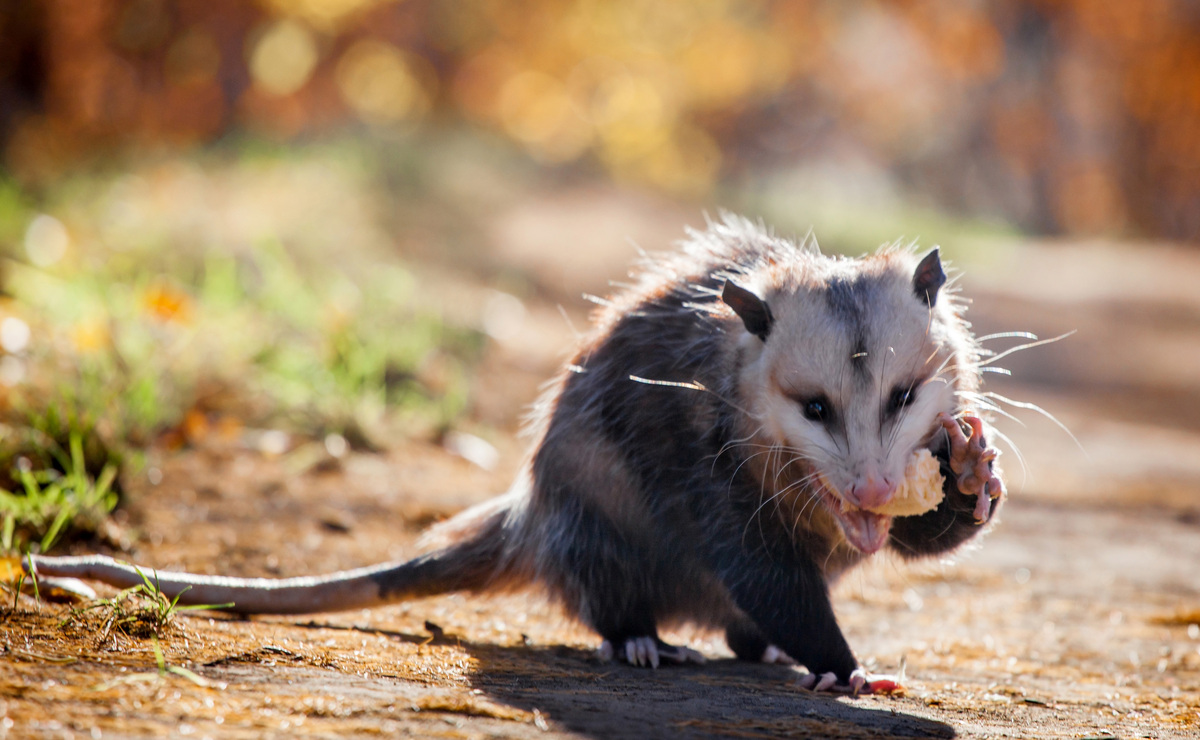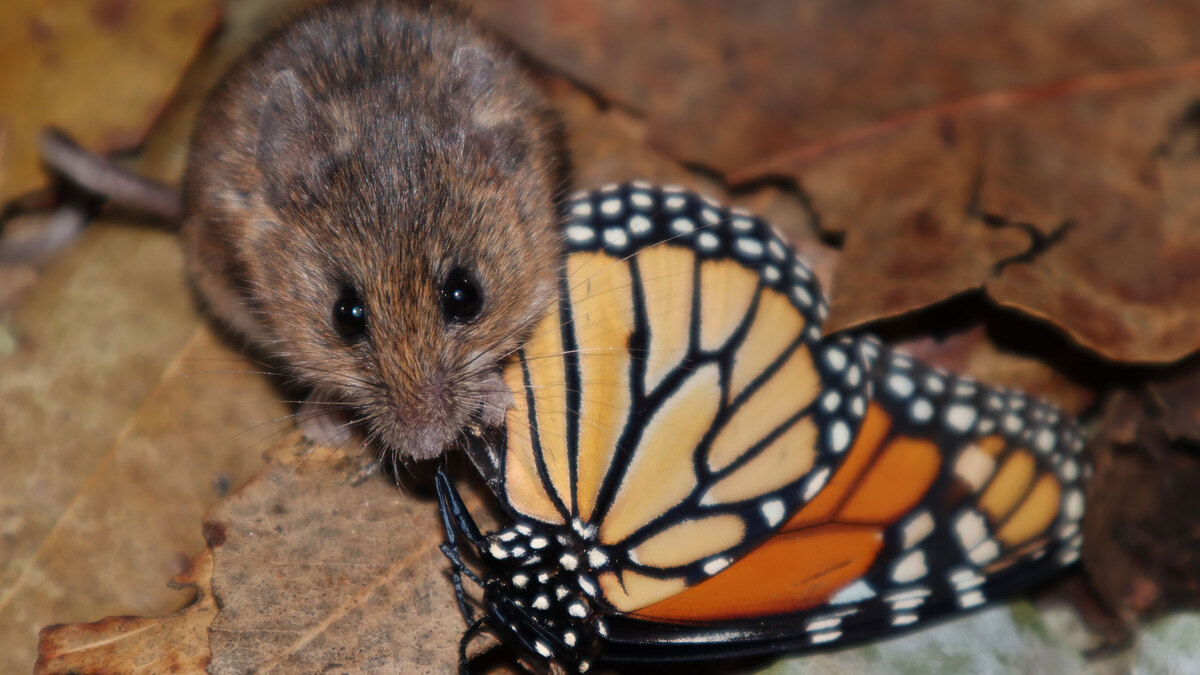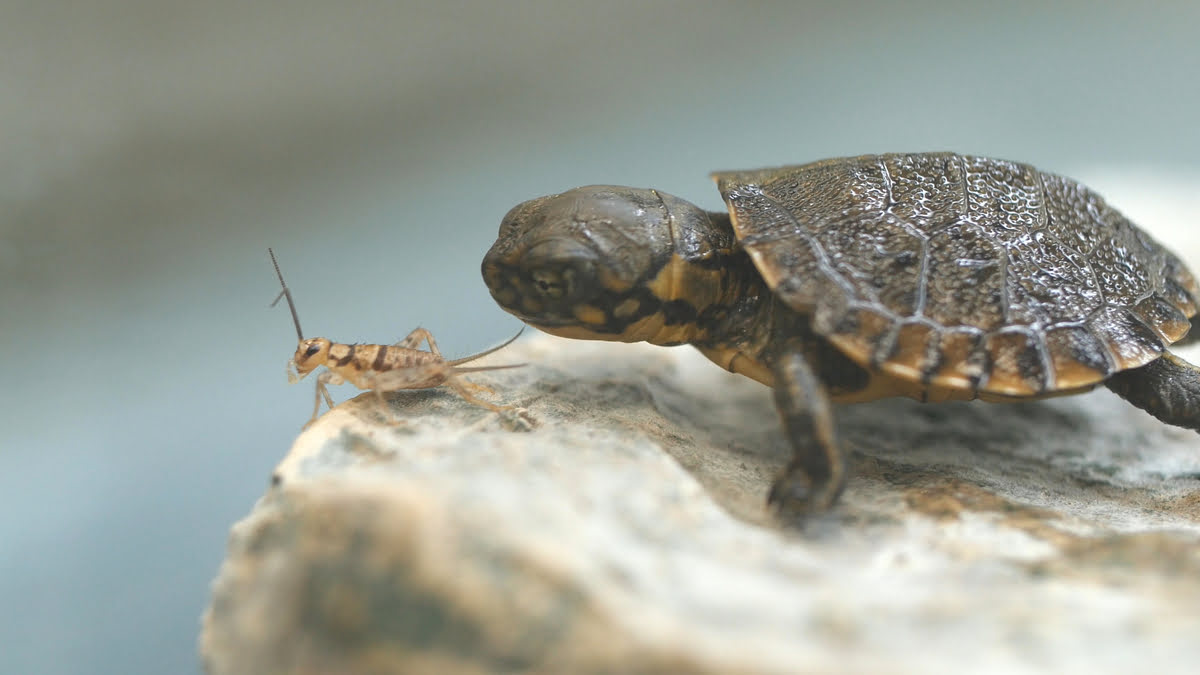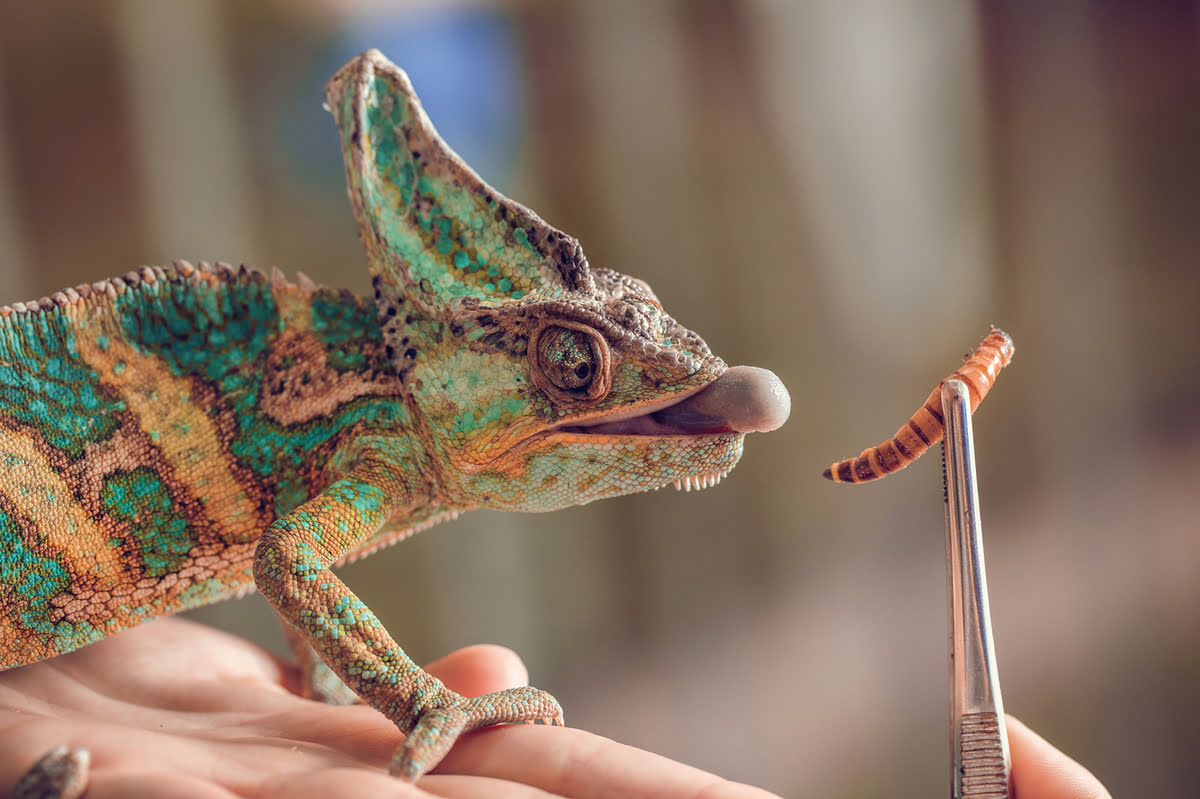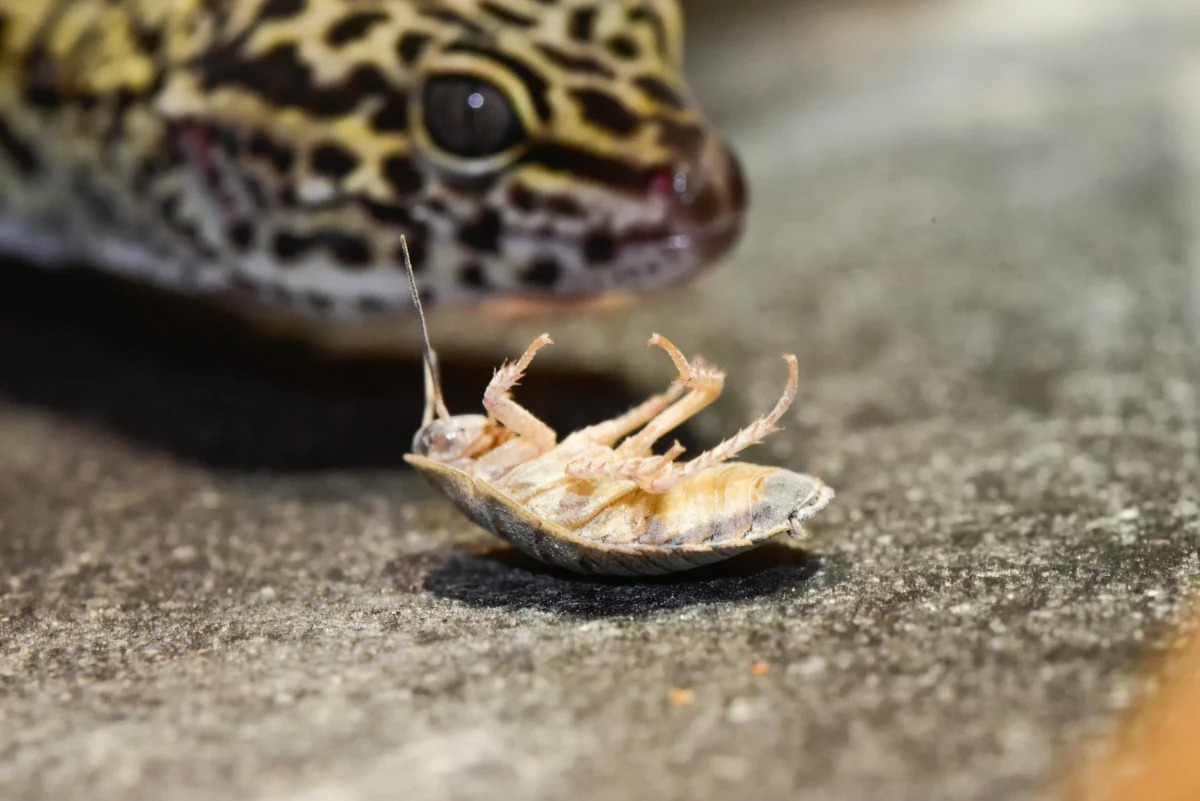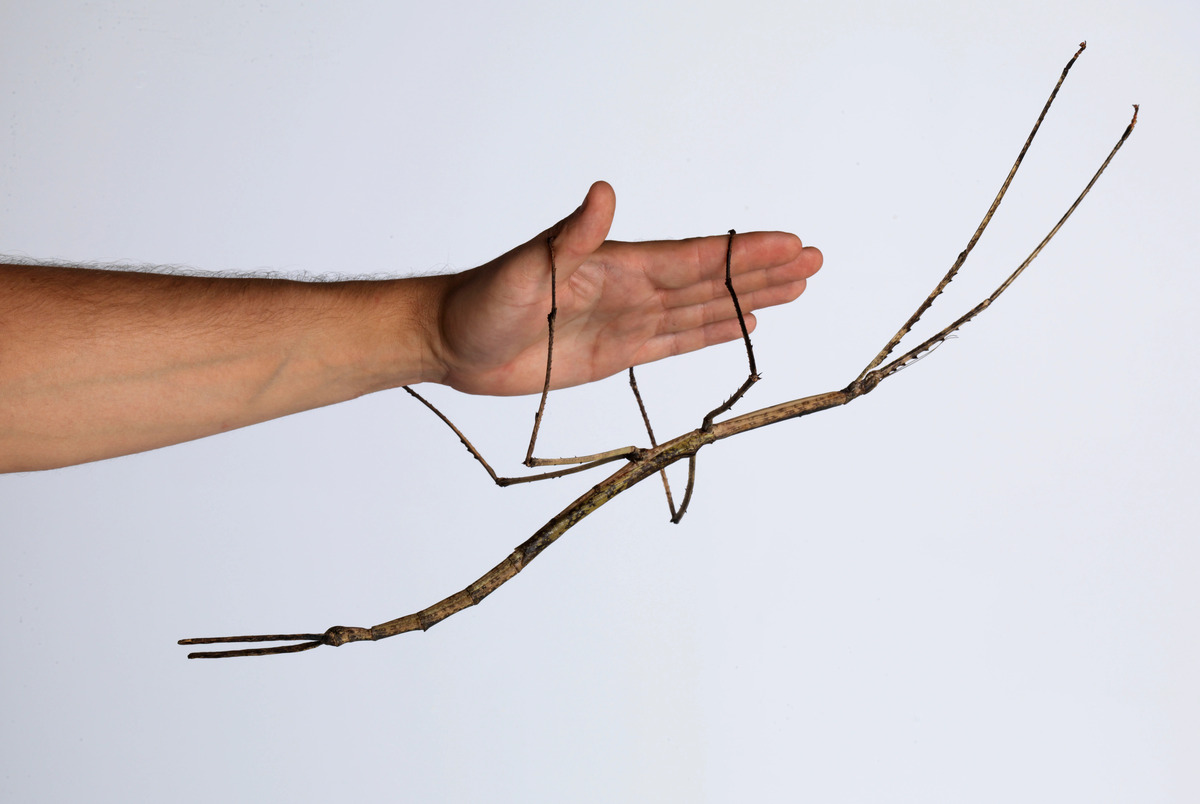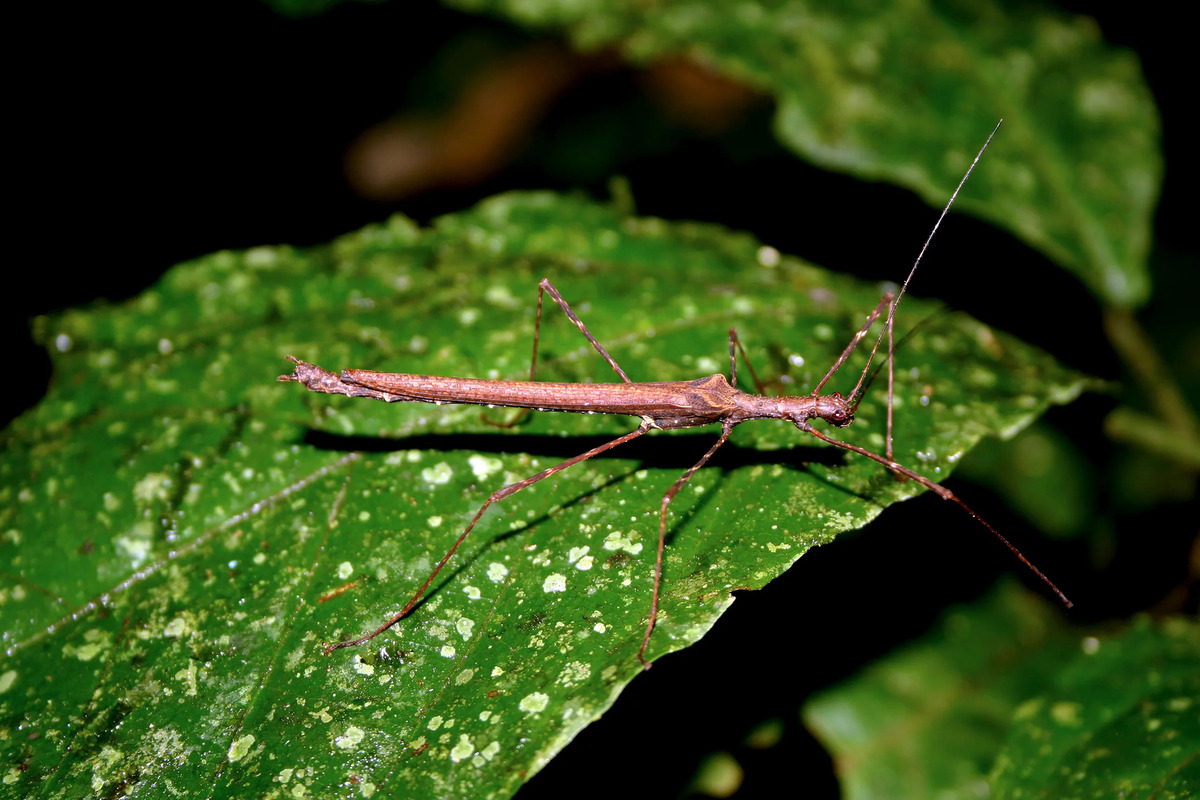Home>Gardening News and Trends>Latest News>What Insects Do Baby Birds Eat
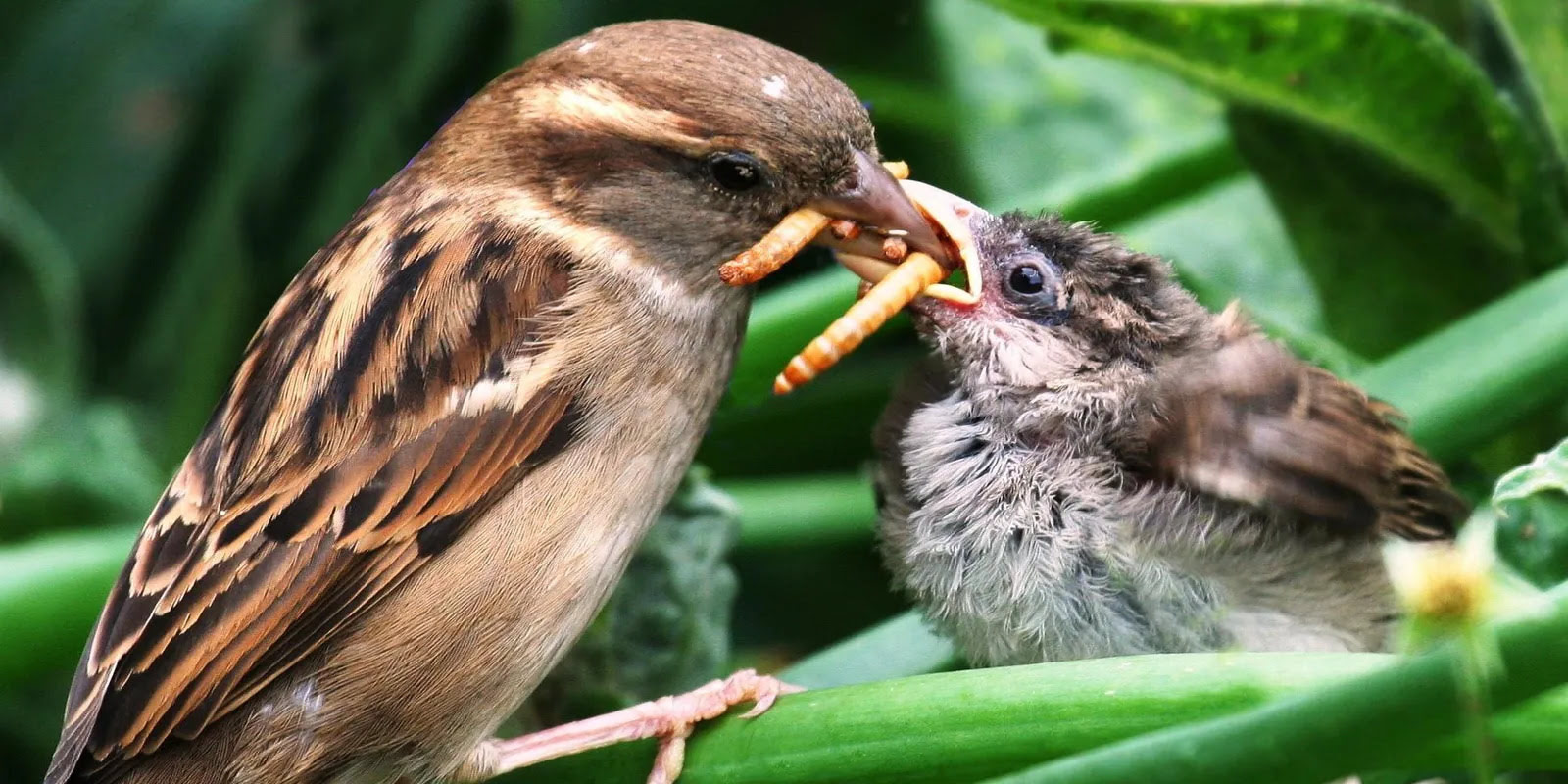

Latest News
What Insects Do Baby Birds Eat
Modified: January 22, 2024
Discover the latest news on what insects baby birds eat in their early stages. Learn about the essential role insects play in the diet of young birds and their growth and development.
(Many of the links in this article redirect to a specific reviewed product. Your purchase of these products through affiliate links helps to generate commission for Chicagolandgardening.com, at no extra cost. Learn more)
Table of Contents
Introduction
Welcome to the fascinating world of baby birds and the insects they consume as part of their diet. Baby birds, also known as fledglings, go through a critical phase of growth and development after hatching from their eggs. During this period, their dietary requirements play a vital role in ensuring their survival and successful transition into adulthood.
As helpless and dependent creatures, baby birds rely on their parents to provide them with a steady supply of food. And one of the primary food sources for these young avian creatures comes in the form of insects. Insects not only offer essential nutrients, but they also provide a valuable source of energy that fuels the fledglings’ rapid growth.
In this article, we will explore the types of insects that make up the diet of baby birds, discuss the benefits these insects offer, and delve into the challenges that baby birds face when obtaining their insect-based sustenance. Understanding the significance of insects in the diet of baby birds will shed light on the delicate balance of nature and the crucial role that insects play in the survival of avian species.
Importance of Baby Birds’ Diet
The diet of baby birds is of paramount importance to their overall health and well-being. During the early stages of their life, baby birds rely heavily on the nutrients provided by their food to support their growing bodies and develop vital physiological functions. This dependency on a nutritious diet highlights the critical role that insects play in the survival and growth of these fledglings.
First and foremost, insects are a rich source of protein, which is essential for the development of baby birds’ muscles, organs, and feathers. Protein is a fundamental building block that supports tissue growth and repair, ensuring that the young avian creatures develop strong and healthy bodies. Without an adequate supply of protein, baby birds may experience stunted growth and weakened immune systems.
Furthermore, the high fat content found in many insects provides baby birds with a concentrated source of energy. This energy is essential for maintaining body temperature, fueling physical activity, and supporting the metabolic processes involved in growth. Without sufficient energy from their diet, baby birds may struggle to meet their energy demands, leading to weakness and increased vulnerability to predators.
Another crucial nutrient found in insects is calcium, which is essential for the proper development of baby birds’ bones and beaks. Calcium is a vital mineral that helps strengthen the skeletal structure of growing birds, ensuring their bones are sturdy and capable of supporting their bodies as they grow and begin to fly. A deficiency in calcium can lead to skeletal deformities and impaired motor skills in baby birds.
In addition to these key nutrients, insects also provide baby birds with a diverse array of vitamins and minerals necessary for their overall health and development. These micronutrients play a role in various physiological processes, including the functioning of the immune system, the synthesis of enzymes and hormones, and the maintenance of healthy feathers and skin.
The importance of a well-balanced diet for baby birds cannot be overstated. The nutrients obtained from insects are crucial for their growth, development, and ability to survive in the wild. Baby birds that receive a nutrient-rich diet during their early stages are more likely to thrive, reach maturity, and successfully breed in the future.
Types of Insects Consumed by Baby Birds
Baby birds have an impressive variety of insects to choose from when it comes to their diet. Different species of birds have preferences for specific insects based on factors such as their size, availability, and nutritional value. Let’s explore some common types of insects that are commonly consumed by baby birds:
- Beetles: Beetles are a highly diverse group of insects with a wide range of sizes and shapes. They are abundant in many habitats and offer a good source of protein for baby birds. Ground-feeding birds, such as robins and thrushes, often feed on beetles found in leaf litter and soil.
- Caterpillars: Caterpillars are the larvae of butterflies and moths and are a staple diet for many baby birds. They are known for their high protein content and are easily digestible. In fact, some species of birds, like warblers and chickadees, are specialized in searching for and consuming caterpillars in foliage and trees.
- Grasshoppers and crickets: These insects are a favorite among many bird species due to their abundance and nutritional value. Grasshoppers and crickets are rich in protein, making them an excellent food source for baby birds. Species such as sparrows, swallows, and flycatchers are known to feed on these agile and jumping insects.
- Flies: Flies are a diverse group of insects that are widely available and easily accessible to baby birds. They come in various sizes and types, including houseflies, fruit flies, and crane flies. Many bird species, including flycatchers and gnatcatchers, rely on flies for their protein-rich diet.
- Ants: Ants are small insects that form an integral part of the diet of many baby birds. They are known for their high protein and fat content, making them a valuable source of energy. Some bird species, like woodpeckers and nuthatches, have the unique ability to extract ants from trees and devour them.
- Dragonflies and damselflies: These agile and swift-flying insects are a prized food source for baby birds. With their long and slender bodies, dragonflies and damselflies offer a good balance of protein and energy. Bird species such as swifts and swallows are known to catch these insects on the wing.
These are just a few examples of the diverse range of insects that baby birds consume. Depending on their habitat and specific dietary needs, baby birds may also feed on spiders, earthworms, grass bugs, and many other arthropods.
Understanding the types of insects that baby birds consume helps us appreciate the intricate relationship between birds and their insect prey, highlighting the remarkable adaptations and behaviors that allow these birds to thrive in various environments.
Benefits of Insects in Baby Birds’ Diet
Insects play a crucial role in the diet of baby birds, providing them with numerous benefits that support their growth and development. Let’s explore some of the key advantages of including insects in the diet of these fledglings:
- Nutritional Value: Insects are highly nutritious and provide baby birds with essential proteins, fats, vitamins, and minerals necessary for their physical and cognitive development. The high protein content of insects is particularly important for muscle and tissue growth, while fats offer a concentrated source of energy needed for active bird species.
- Digestibility: Insects are easily digestible for baby birds due to their soft exoskeleton and relatively high moisture content. Their small size and soft bodies make it easier for fledglings to break them down and extract the necessary nutrients, ensuring the maximum utilization of the insect’s nutritional value.
- Indispensable Amino Acids: Many insects contain a wide range of essential amino acids that are vital for the synthesis of proteins in baby birds. These amino acids are building blocks for growth and development, supporting the formation of muscles, organs, feathers, and other vital tissues.
- Enhanced Feather Development: Feathers are essential for baby birds as they provide insulation, protection, and aid in flight. Insects, such as caterpillars, are rich in keratin, a protein that is the primary component of feathers. The consumption of insects helps baby birds develop strong and healthy feathers, ensuring their survival and adaptation to their environment.
- Stimulated Hunting Skills: By consuming insects, baby birds develop and hone their hunting skills from an early age. Hunting insects helps them to refine their agility, coordination, and precision in catching elusive and fast-moving prey. These skills are crucial for their survival and future hunting success.
- Positive Impact on Learning: Foraging for insects provides valuable learning opportunities for baby birds. It allows them to acquire vital skills, such as problem-solving, decision-making, and spatial awareness, which are necessary for their survival in the wild. Insects offer a diverse range of challenges, stimulating cognitive development in baby birds.
- Natural Immunity Boost: Insects can contain natural substances, such as antimicrobial peptides, that provide immune-boosting benefits to baby birds. These peptides help strengthen their immune systems, making them more resistant to diseases and infections that they may encounter in their environment.
The inclusion of insects in the diet of baby birds is not merely a matter of nutrition. It is a vital component in their overall development, allowing them to acquire essential skills, build a strong immune system, and lay the foundation for a successful life as adults in the wild.
Role of Parents in Providing Insects to Baby Birds
When it comes to feeding their young, bird parents take on the crucial responsibility of providing insects as a primary source of food for their offspring. The role of parents in supplying insects to baby birds is instrumental in ensuring their growth, development, and ultimately, their survival. Let’s explore the key aspects of the parental role in providing insects to their fledglings:
- Foraging: Bird parents engage in extensive foraging activities to locate and capture a variety of insects to feed their hungry nestlings. They tirelessly search their surroundings, from grassy areas to tree canopies, in order to secure a diverse and nutritious insect diet for their young.
- Provisioning: Once bird parents have successfully captured insects, they return to the nest and regurgitate the pre-digested food for their baby birds to consume. This process, known as provisioning, ensures that the insects are in a suitable form for the fledglings to digest and utilize the nutrients effectively.
- Feeding Frequency: Insect-eating bird parents have to provide a steady supply of insects to their nestlings throughout the day. The frequency of feeding varies among different bird species, but typically, parents make frequent trips back and forth from the nest, delivering insects to satisfy the growing appetites of their offspring.
- Dietary Adaptations: Bird parents demonstrate remarkable dietary adaptations to ensure they can provide a suitable insect diet to their baby birds. They may alter their foraging behavior, searching for specific types of insects or adjusting their feeding locations based on the needs of their young. This adaptability allows them to optimize the nutrition and variety of insects they offer to their nestlings.
- Age-Appropriate Food: As baby birds grow and develop, their nutritional needs change. Bird parents play a critical role in providing age-appropriate insects that align with the development stage of their fledglings. For example, during the early stages, when hatchlings are still unable to digest hard-bodied insects, parents may focus on supplying soft-bodied prey options like caterpillars.
- Teaching and Training: In addition to providing insects for their young, bird parents also play a role in teaching and training their fledglings how to hunt and capture insects on their own. Parent birds demonstrate hunting techniques, such as chasing and capturing flying insects, and gradually encourage their offspring to practice these skills under their watchful guidance.
- Parental Cooperation: In many bird species, both the male and female parents collaborate in the task of providing insects to their nestlings. They take turns foraging, feeding, and protecting the nest, demonstrating a shared responsibility in ensuring their offspring receive the necessary nutrition to thrive.
The commitment and efforts of bird parents in providing insects to their baby birds showcase the remarkable instincts and nurturing abilities of these avian caregivers. Their dedication to securing a reliable and nutritious insect diet for their young is vital for the survival and successful development of the next generation of birds.
Challenges Faced by Baby Birds in Obtaining Insects
While insects are an essential part of a baby bird’s diet, the acquisition of these crucial food sources presents various challenges for the young fledglings. From competition to environmental factors, baby birds face several obstacles when it comes to obtaining insects. Let’s explore some of the challenges they encounter:
- Competition: Baby birds often have to compete with other individuals within their own species, as well as with other bird species, for limited insect resources. The competition for food can be intense, especially in areas with high bird populations or in habitats where insects are scarce. This competition may result in some individuals having to search farther or settle for less preferred prey.
- Availability: Insects can fluctuate in abundance depending on factors like seasonality, weather conditions, and habitat changes. Baby birds may face challenges when insects are in short supply or when they are scarce due to factors like drought, extreme temperatures, or pesticide use. Limited availability of insects can lead to nutritional stress and impact the growth and development of the fledglings.
- Environmental Hazards: Baby birds face numerous environmental hazards that can affect their ability to find insects. Predators, such as snakes, mammals, and other birds, pose a constant threat to their safety and may disrupt their foraging activities. Additionally, exposure to natural disasters, pollution, and habitat destruction can diminish insect populations and make it more challenging for baby birds to locate food.
- Learning Curve: Young baby birds undergo a learning process when it comes to hunting and capturing insects. Initially, they may lack the necessary skills and experience to successfully capture their prey. It takes time for them to develop the necessary coordination, agility, and timing to catch moving insects. During this learning phase, they may struggle to secure an adequate insect diet.
- Parental Assistance: Baby birds heavily depend on their parents to provide them with insects. However, if their parents face challenges in finding enough insects or if their parents are absent or inexperienced, the fledglings may face difficulties in obtaining a sufficient insect-based diet. The lack of parental assistance can have detrimental effects on the growth and survival of the baby birds.
- Migration and Dispersal: Some baby birds have to deal with the additional challenge of migration or dispersal. They may need to travel long distances to reach suitable habitats or establish their own territories. During these journeys, they may encounter different insect availability along the way, which can impact their ability to find sufficient food during critical periods of their development.
Despite these challenges, baby birds are remarkably adaptable and resilient. They have evolved various strategies to cope with the obstacles they encounter while obtaining insects, ensuring that they acquire the necessary nutrition for their growth and eventual independence.
Conclusion
The role of insects in the diet of baby birds cannot be overstated. These small, often overlooked creatures provide a valuable source of nutrition and play a vital role in the growth and development of fledglings. From protein and energy to essential vitamins and minerals, insects offer a complete and well-rounded diet that supports the overall health and well-being of baby birds.
Baby birds rely heavily on their parents to provide them with a steady supply of insects. The efforts of bird parents in locating, capturing, and providing these insect meals are essential for the survival and successful transition of their offspring into adulthood. Through their foraging, provisioning, and teaching, bird parents ensure that their young receive the nutrition and skills they need to thrive in the wild.
However, baby birds face various challenges when it comes to obtaining insects. Competition, limited availability, environmental hazards, and the learning curve of hunting all pose obstacles to these fledglings as they seek out their essential food source. Despite these challenges, baby birds exhibit remarkable adaptability and resilience, showcasing the incredible abilities ingrained in their instincts.
Understanding the importance of insects in the diet of baby birds gives us a deeper appreciation for the delicate balance of nature. It reminds us of the interdependence between different species and the critical role insects play as a foundation of the ecosystem. Preserving habitats, minimizing pesticide use, and promoting biodiversity are crucial steps in ensuring the availability of insects not just for baby birds, but for the overall health of our environment.
So, the next time you hear the chirping of baby birds, take a moment to imagine the remarkable journey they undertake as they grow, develop, and acquire the insects they need for their survival. Appreciate the interconnectedness of the natural world and the valuable role insects play in nurturing the next generation of avian wonders.
